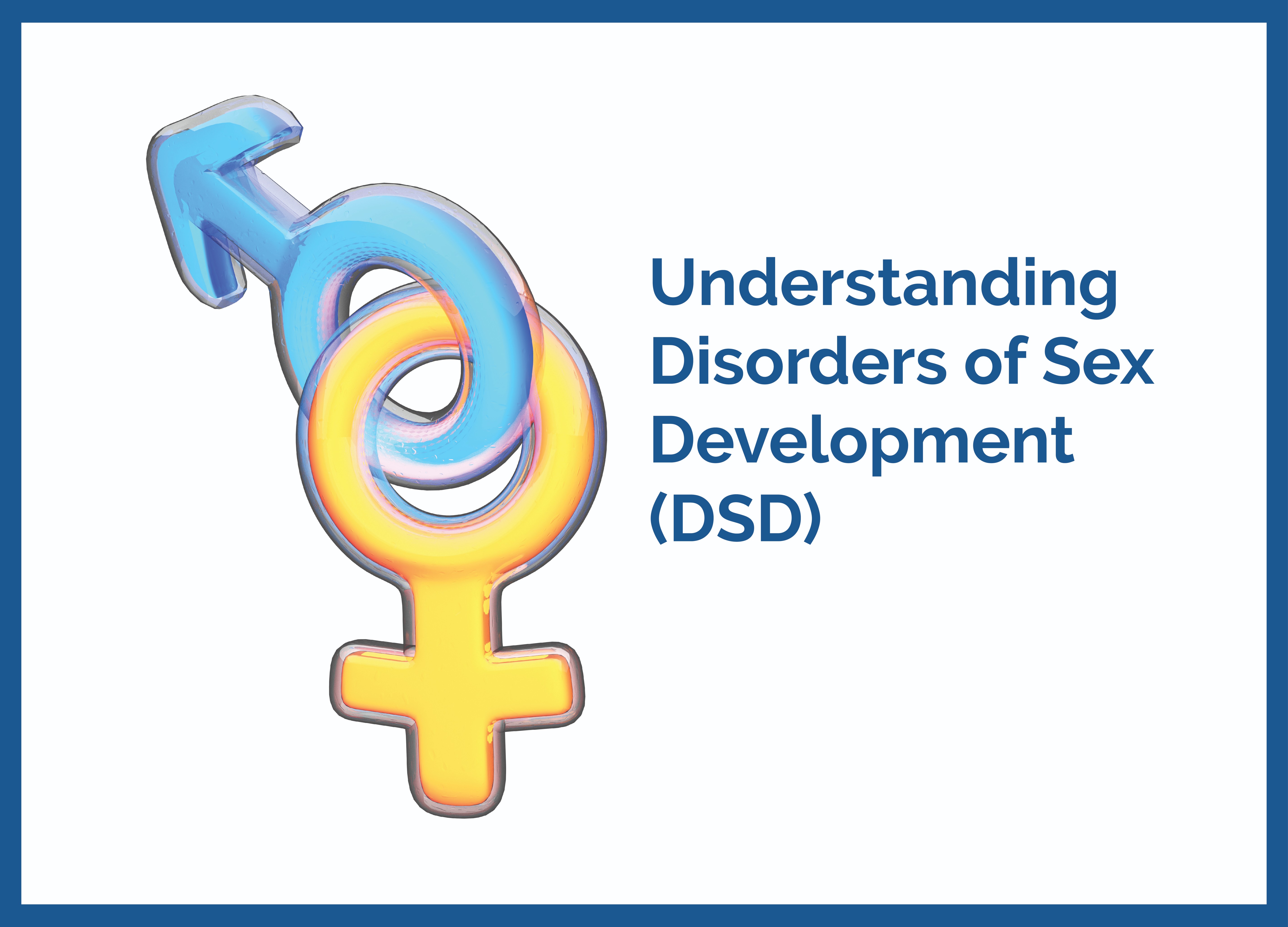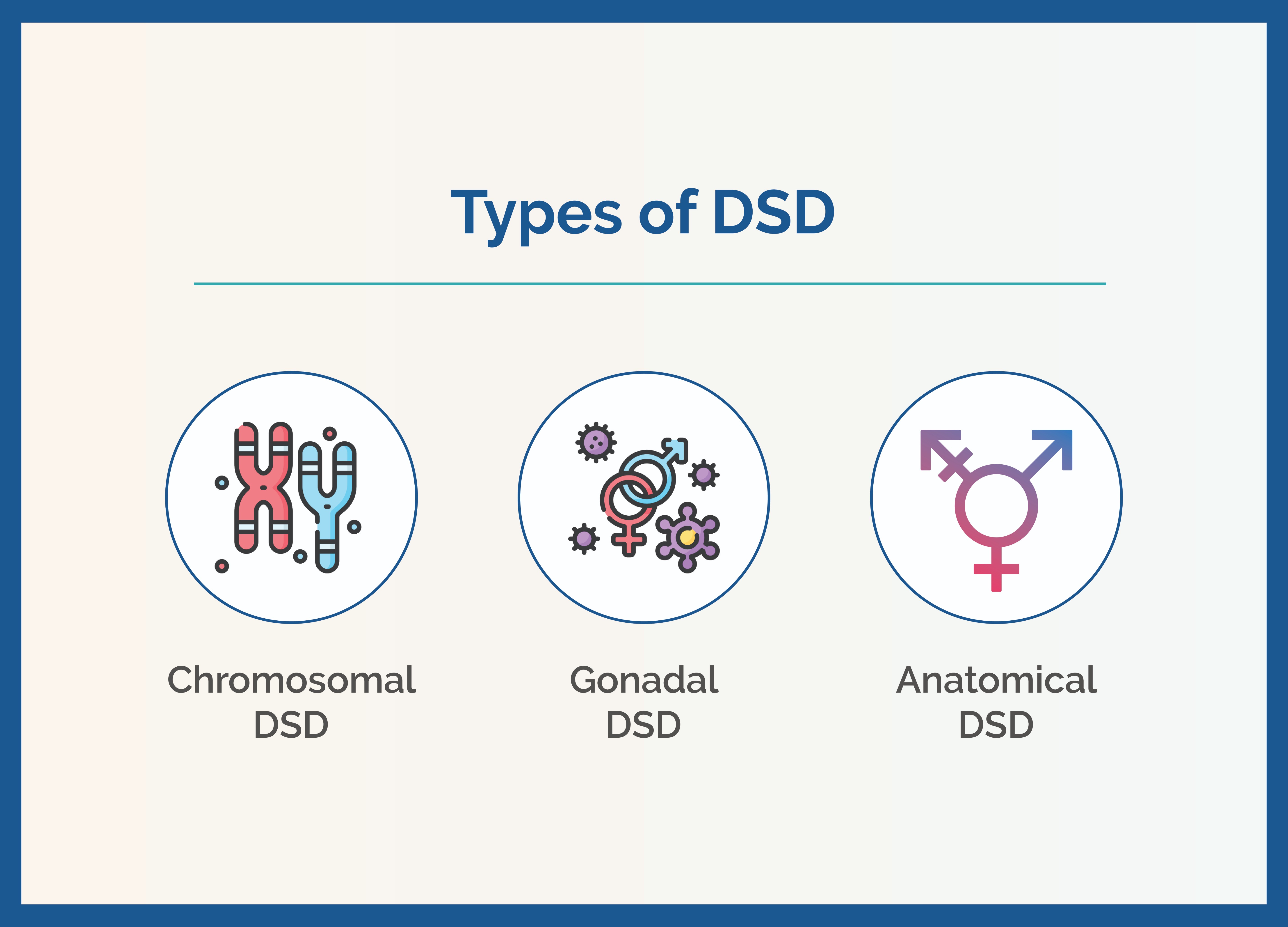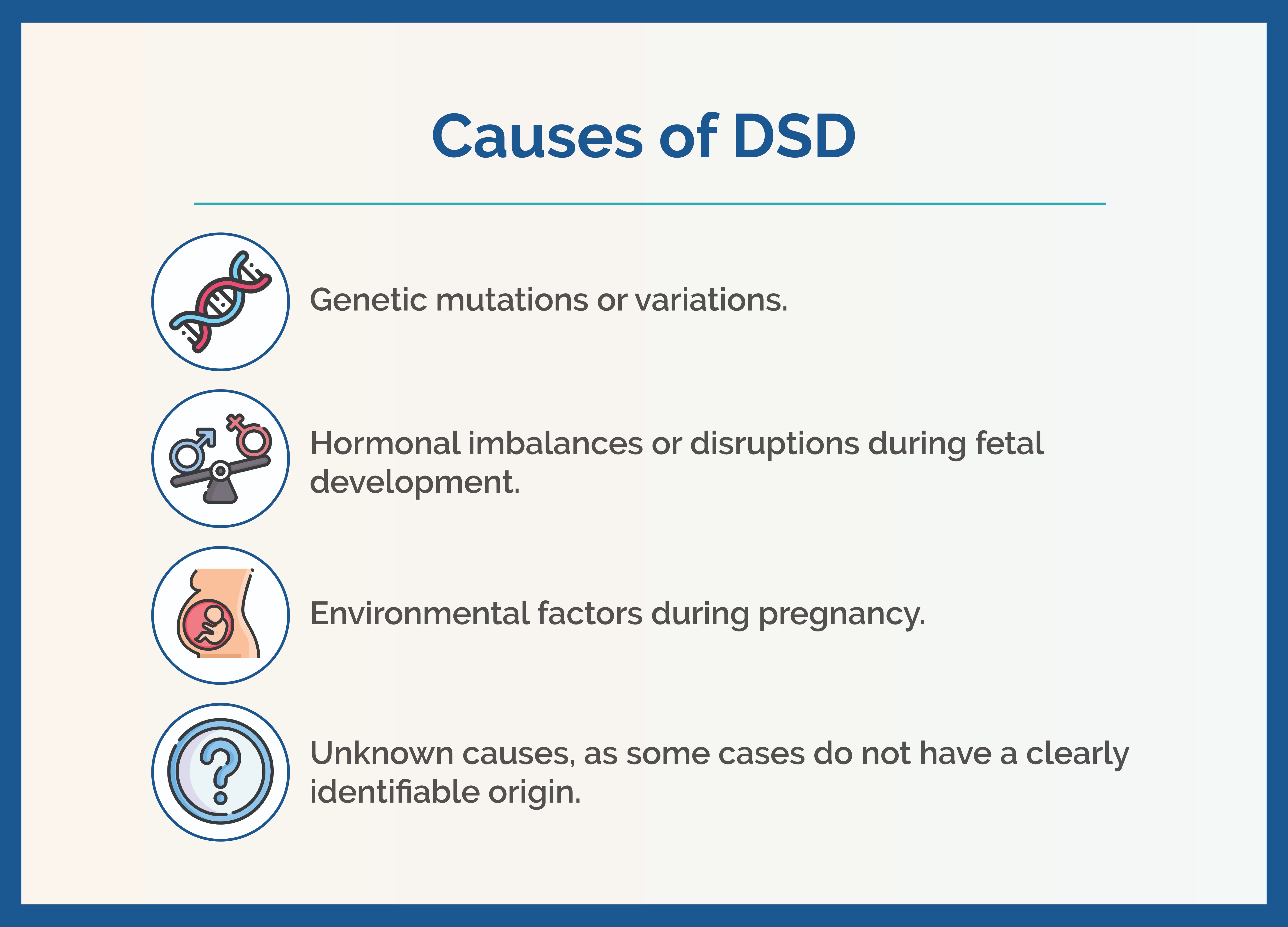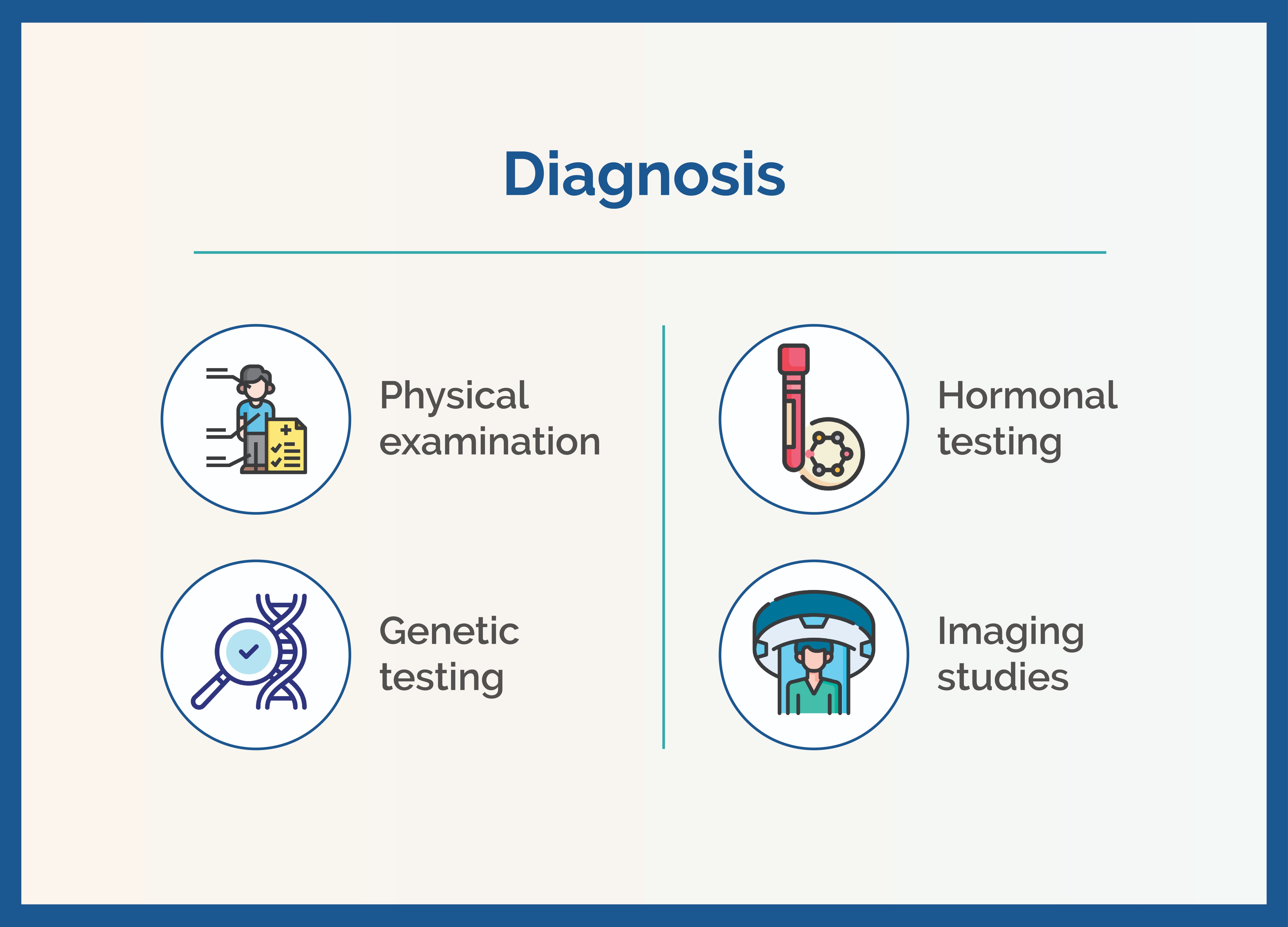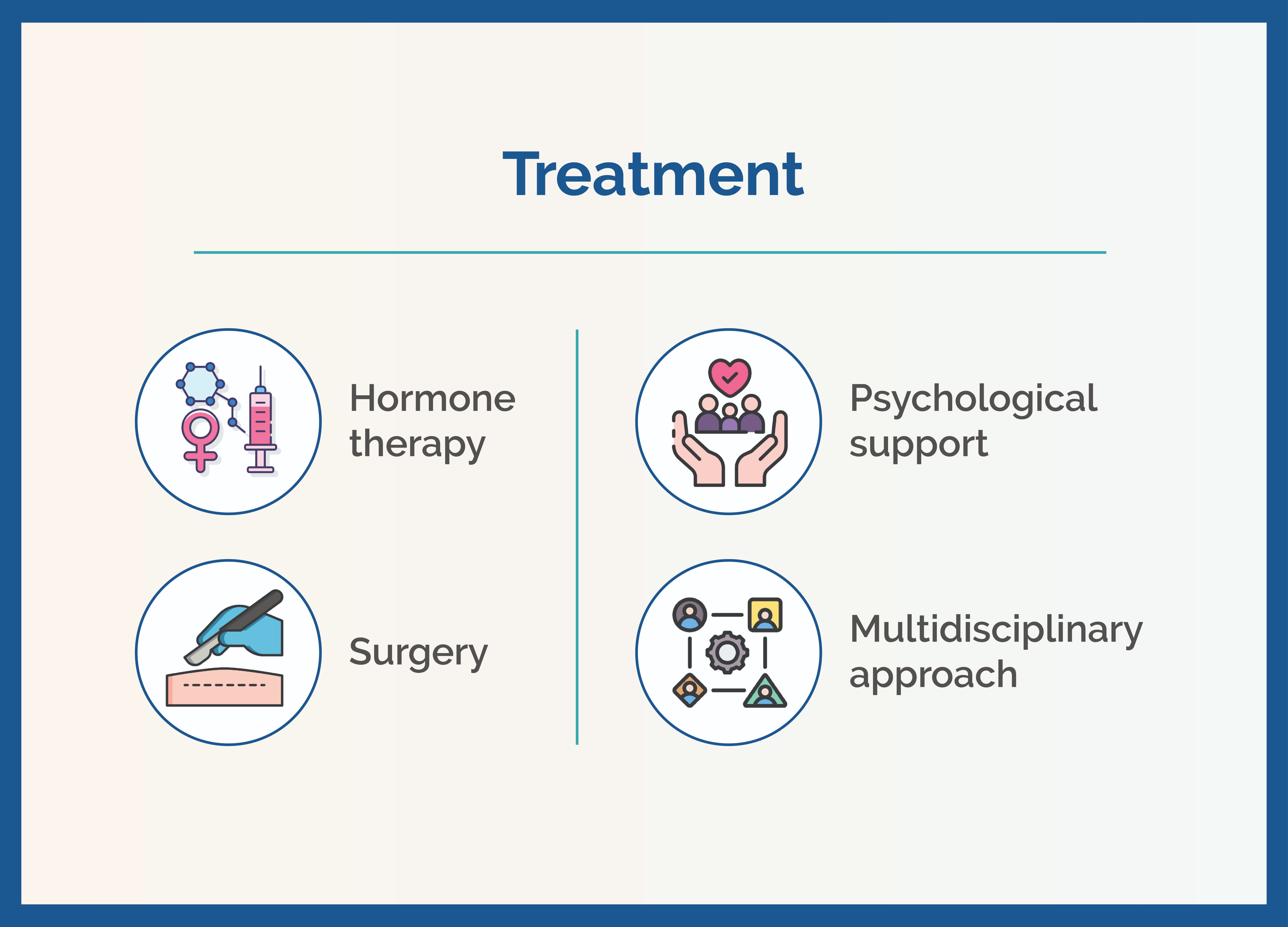Frequently Asked Questions (FAQs) about
Disorders of Sex Development:
What are Disorders of Sex Development (DSD)?
DSD are congenital conditions where the development of chromosomal, gonadal, or anatomical
sex
is atypical, leading to a range of variations in sex characteristics.
How common are DSD?
DSD occur in approximately 1 in 4,500 births, but the prevalence may vary depending on the
specific
type of DSD.
What causes DSD?
DSD can be caused by genetic mutations,
hormonal imbalances during fetal development,
environmental factors, or sometimes unknown reasons.
How are DSD diagnosed?
Diagnosis typically involves physical examination, hormonal testing, genetic testing, and
imaging
studies to understand the underlying cause and extent of the condition.
Can DSD be treated?
Yes, treatment may include hormone therapy, surgery, and psychological support. The
approach is
tailored to the individual’s needs and often involves a multidisciplinary team of
healthcare providers.
Is it necessary to have surgery for DSD?
Surgery is not always necessary and is considered on a case-by-case basis. Decisions about
surgery
are made carefully, often prioritizing the individual's health and well-being.
How can families support a child with DSD?
Families can support a child with DSD by seeking comprehensive medical care, providing
emotional
support, and fostering a supportive and understanding environment.
What kind of specialists are involved in the care of individuals with DSD?
Care often involves endocrinologists, geneticists, surgeons, psychologists, and other
specialists working
together to provide holistic care.
Are there support groups for individuals and families affected by DSD?
Yes, there are various support groups and organizations that provide resources, support,
and
advocacy for individuals and families affected by DSD.
How does DSD affect puberty and fertility?
DSD can affect puberty and fertility in various ways depending on the specific condition.
Some
individuals may require hormone therapy to support puberty, and fertility options can vary.
